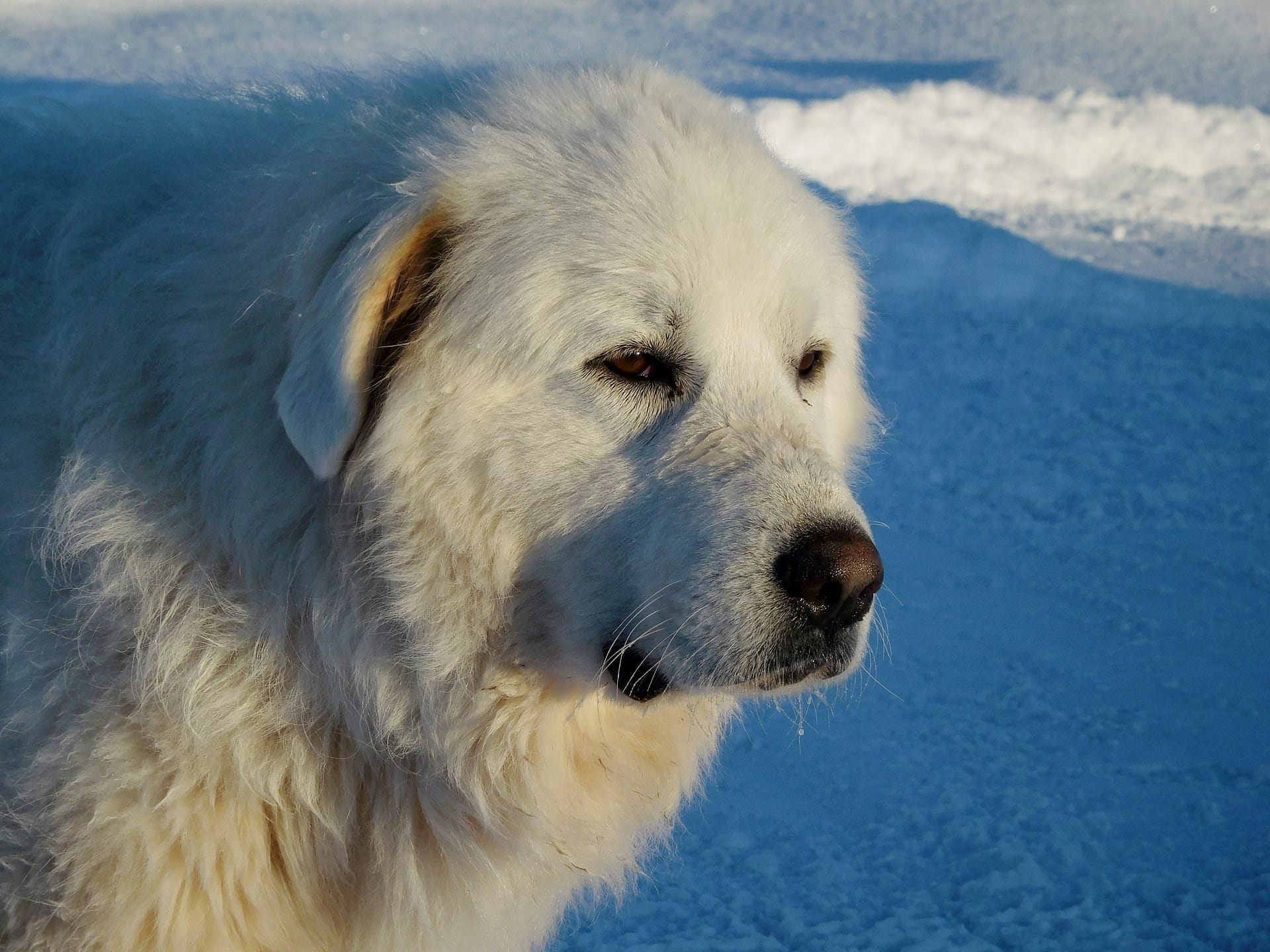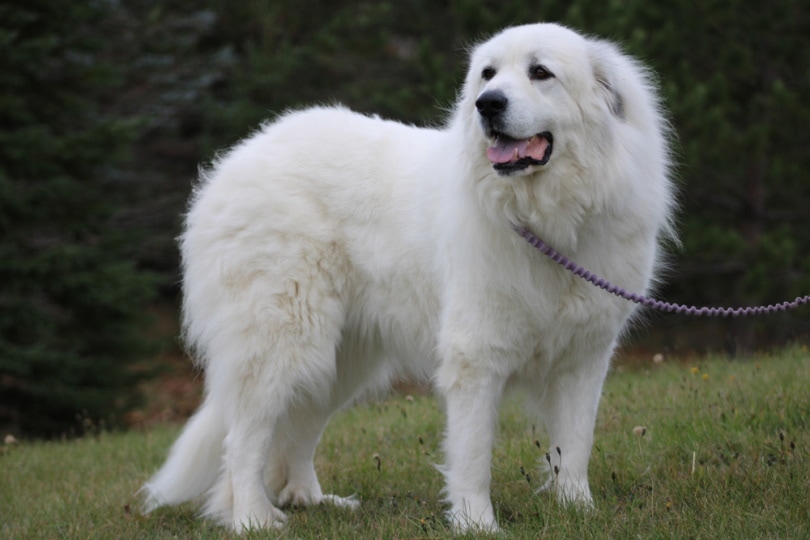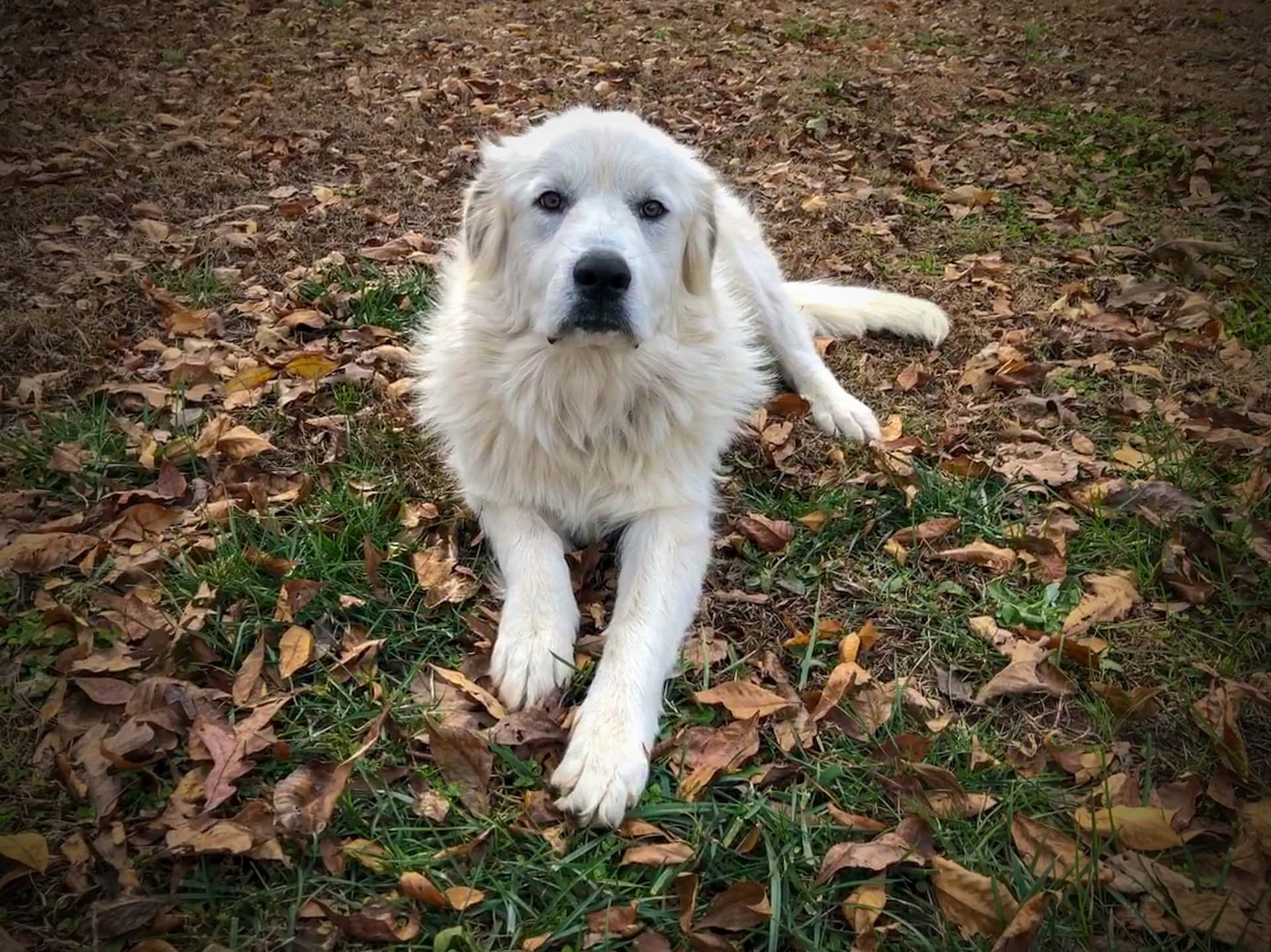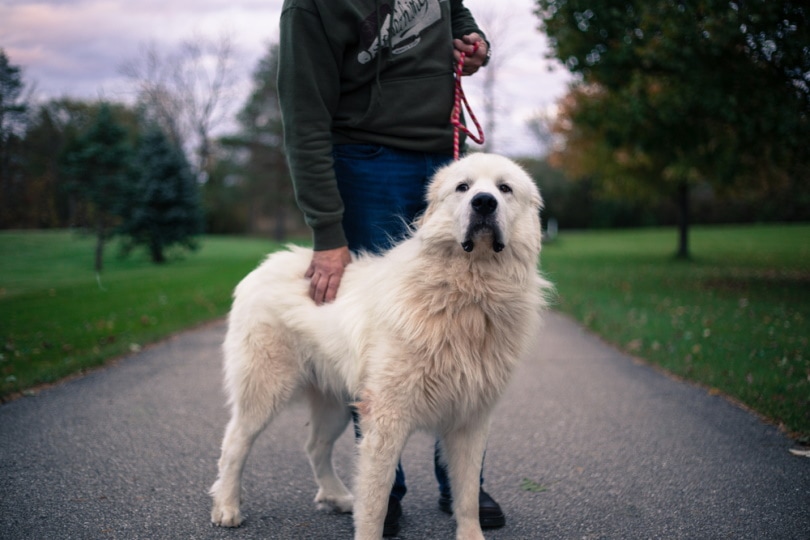In this article
Is your Great Pyrenees a non-stop barking machine? If your Pyr just won’t give the yapping and woofing a break, know that you’re not alone. Great Pyrenees are well-loved by many as they make great family pets with their adorable, fluffy appearance. There’s so much to love about these furry beasts.
But like all dogs, they have their own quirks, and one of them is quite likely to be their barking. Yes, overall, they do bark a lot, but the frequency can vary among individuals. And just because the breed has a tendency for vocalization doesn’t mean all is lost for your individual Pyr.
Barking is an instinct for Great Pyrenees. When they feel a type of way, they let you know! However, with proper training, you can reduce excessive barking and maintain a harmonious relationship with your furry bestie.

Pyr Barking: Communication
Barking is a part of dog communication, along with body language and scent. The tone, pitch, and frequency of the bark vary depending on the message the dog is trying to convey. Listen out for the emotion in their noises. Low-pitched growls may be indicative of aggression or fear, whereas high-pitched barks may indicate excitement or playfulness. Your Pyr is trying to tell you something. In some cases, barking is simply a form of attention, especially if the dog has been left alone for a long time.
In addition to barking at unfamiliar sounds or sights, dogs also bark to protect their family and home. Reply appropriately to your dog’s barking; yelling or punishing them could worsen the situation and reinforce negative behavior. The barking of Great Pyrenees can also be used as an expression of their energetic personalities. Pyrs tend to bark more frequently than other breeds because of their lively nature and high intelligence. Despite this, excessive barking is not considered normal behavior for this breed.

It’s in the Genes
These dogs have a long history of barking. We mean long. Dating back to 3,000 years ago, they were bred to guard flocks of sheep. Their whole purpose was to make a ruckus and drive off predators. Living high up in the mountains, they had to wild out to warn predators away from their flocks. This means that the loudest, most easily triggered Pyrs were the ones that got selected to breed the next generation of Pyrenees puppies—and on and on until we get to the barkers of today. Even today, Great Pyrenees continue to bark for various reasons, such as anxiety, protection, aggression, happiness, frustration—you name it.
How Much Barking Is Too Much for Great Pyrenees?
Barking is a natural form of communication for Pyrs, and they use it to communicate a variety of feelings and needs. However, some Pyrs are more likely to bark than others. The problem of excessive barking is one that many pet owners have to deal with. Everyone in the household can become frustrated when their Great Pyrenees barks excessively. How can normal barking be distinguished from excessive barking? It is important to know where to draw the line between normal Pyr behavior and excessive vocalization.
The Impacts of Excessive Barking
Normally, Great Pyrenees barking usually occurs in short bursts and is usually a reaction to stress, excitement, or curiosity. In excess barking situations, Pyrs repeatedly vocalize throughout the day and night for extended periods of time. An owner should consider addressing their pet’s underlying anxieties or separation issues if they display this type of behavior. If not managed properly, excessively barking Great Pyrenees can also cause disturbances in the neighborhood and increase household stress levels. Reach out to behaviorist or a veterinarian for an advice on how to deal with excessive barking.
If you need to speak with a vet but can't get to one, head over to PangoVet. It's our online service where you can talk to a vet online and get the advice you need for your pet — all at an affordable price!

Protective Barking
Great Pyrenees are majestic, gentle giants that have a lot of bark to them. This breed is highly protective of their family and homes, so it’s not surprising that barking is a common behavior. When such a large dog barks, it’s often perceived as quite scary—especially by guests or strangers that don’t know your Pyr well. If they hear an unfamiliar noise or see something that makes them feel uneasy, they may bark as a warning to their pack. No matter how they’re raised or trained, some Pyrs tend to bark louder—and longer—than others.
In the end, no matter what is inherent in the breed, your Great Pyrenees’ barking depends heavily on your training methods and the environment they live in. This protective barking is a natural response, but it’s important to respond appropriately to help prevent negative behaviors from becoming reinforced.
Training your dog to respond positively to commands, such as “quiet” or “no bark”, can be extremely helpful in curbing the problem. Reinforce each command with treats and praise when executed correctly so that the desired behavior becomes second nature. Additionally, provide plenty of mental stimulation for your pet by introducing new activities and exercises into their daily routine: this will give them something else to focus on besides barking at perceived threats.

Boredom-Induced Barking
Like all dogs, Great Pyrenees need mental stimulation to keep them entertained. These are big dogs with big ol’ brains. If they’re cooped up inside with no one to play with or too few toys, they may become bored. With nothing to bring joy to life, your Pyr may become grumpy. Boredom can lead to excessive barking, especially if the pooch has been left alone for extended periods of time. Not good!
So, make sure to provide your Great Pyrenees with plenty of mental stimulation and exercise to keep them happy and healthy. They’ll behave themselves better in a positive state of mind. This large breed of dog needs regular exercise and mental stimulation to stay fit and content. Give them what they need. A daily walk or a hike in the park can provide the physical activity they need to stay in shape, while playing fetch or agility games can help keep their minds occupied.
What your Pyr needs is action! The amount of exercise needed varies from dog to dog, as some may require, depending on their age, health condition, and overall energy level. All dogs are different. However, it’s important to give them plenty of time outdoors. They need that fresh air and stimulation. Aim for at least two hours per day so that they can get out all their pent-up energy.
Formal exercise is not enough on its own. It’s also beneficial for them to have access to a securely fenced area where they can safely run around off-leash for short bursts throughout the day.
Separation Anxiety
Although Great Pyrenees are big dogs, they are also big softies at heart. They form strong bonds with their owners and can suffer from separation anxiety if left alone for too long. Symptoms of separation anxiety can include destructive behavior, pacing, and excessive barking or howling. If your Great Pyrenees is prone to separation anxiety, it’s important to provide them with a designated space where they can chill while you’re away. Crating is always an option. Whatever area you set aside for them, gradually increase the amount of time they spend alone.


Conclusion
Great Pyrenees bark for multiple reasons, but the key to reducing unwanted vocalization is to address the underlying causes. By providing them with plenty of exercise and mental stimulation, and addressing any separation anxiety they may have, you can help your furry friend become a happier and more relaxed pooch.
Featured Image Credit: Cody Hanson Photography, Shutterstock



















